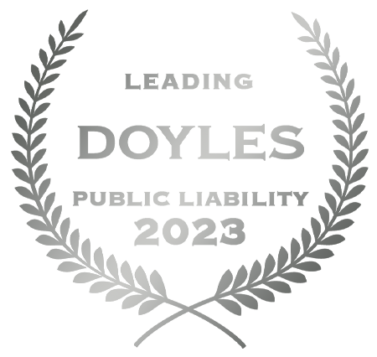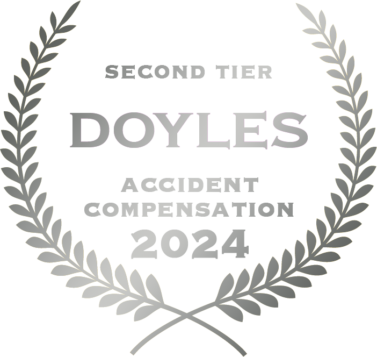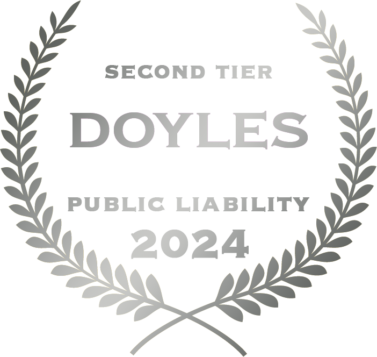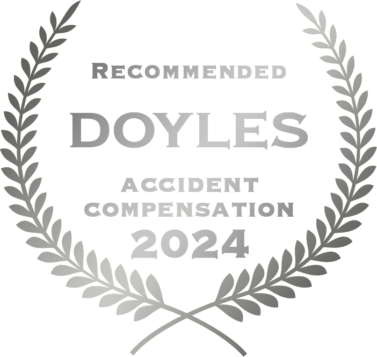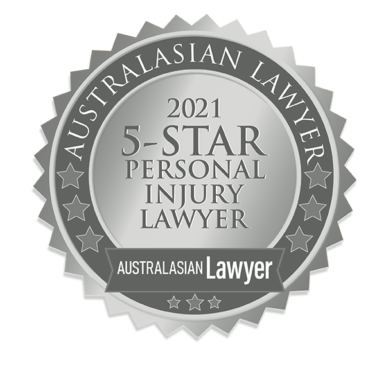
TPD Claim for a Back Injury – Your Guide.
If you’ve had to stop work because of a back injury from a work accident, a car accident, or any other accident, you might be eligible for a TPD claim through your super fund. In fact, any back injury, degenerative disease, or condition that stops you from working may qualify for a TPD claim.
To make a successful TPD claim you’ll need to submit a written application that proves you meet the criteria in your TPD policy. For example, the insurer might reject your claim on the basis that you can still do some work and you don’t qualify for a TPD payout. In this article, we cover some common back injuries and conditions that qualify for TPD claims and provide advice from our TPD specialists on how to make a successful claim.
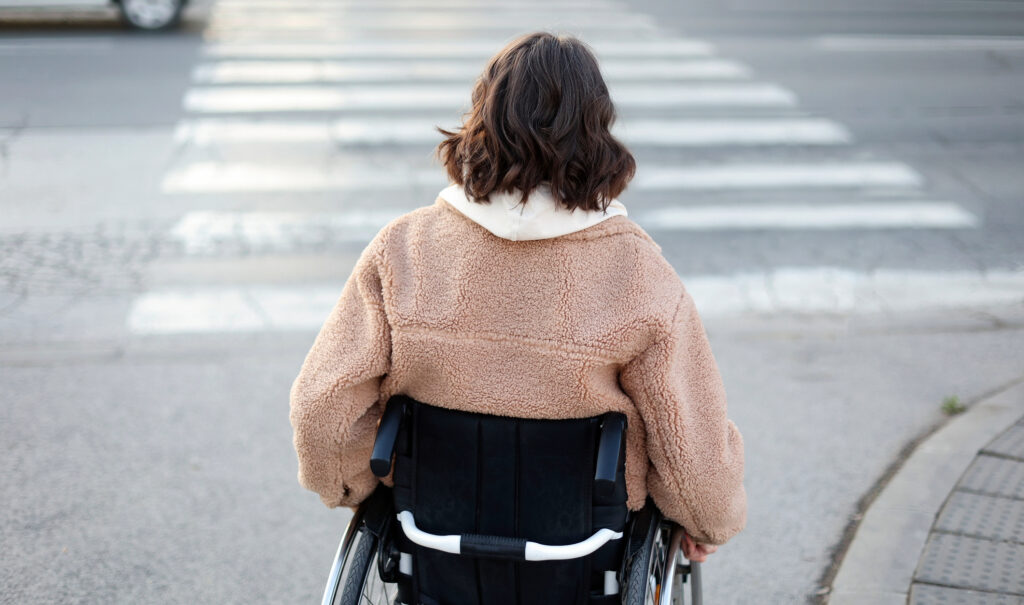
Claiming TPD for a back injury –what you need to know.
We’ve helped thousands of clients make successful TPD claims. In our experience, these are the four situations you’re most likely to find yourself in:
It can be hard to understand the terms of your policy, but you must demonstrate how your back injury meets those terms in your application. Read on to learn more about how this applies to different back injuries.
Your back injury claim could be rejected on the basis that you don’t meet the criteria in your policy – for example, the insurer might claim you can still do some work. However, in our experience, missing or incomplete information in applications can be a major factor in these rejections. This is covered in this article, along with how we can help with your claim.
Back injury claims can be complex, and many people abandon their claims when the process becomes too difficult. Our TPD specialists can advise you on how to speed up the approval process and increase your chances of success.
If your back injury TPD claim has been rejected, we may be able to help you. We have a strong track record in challenging insurer’s decisions and getting them overturned.
Does my back injury qualify for a TPD claim?
For your back injury to qualify for a TPD payout it needs to be serious enough to prevent you from working. It’s important to remember that your insurer will be looking for ways to dispute your claim – like evidence that you can still work in some capacity. So it’s important to provide strong evidence to support your claim.
It’s also important to note that your back injury doesn’t necessarily have to prevent you from working in all jobs to qualify – it depends on the terms of your policy. Our team of experts can look at your policy (or policies) and explain what you’re entitled to.
Here are some examples of back injuries that may qualify for a TPD payout:
If you have severe damage to your spinal cord resulting in paralysis (paraplegia or quadriplegia) or significant loss of function and mobility you may be eligible for a back injury TPD payout. A spinal cord injury may not prevent you from working altogether, so your ability to claim TPD will depend on the extent of your injury and the terms of your TPD policy.
If you have severe fractures to your spinal vertebrae that haven’t healed properly or are causing you long-term pain and functional limitations, you could be eligible for a TPD claim.
James suffered a back injury that resulted in a large TPD payout. You can read his story in the next section of this article.
If you’re in a situation where back surgery, such as spinal fusion, hasn’t relieved your symptoms or has caused further complications and chronic pain you might qualify for a back injury TPD payout. However, claims Iike this need to be backed by well-documented evidence that you satisfy the terms of your policy, so it’s a good idea to get legal advice before you claim.
You may be eligible for a TPD claim if you have a disc injury that’s caused chronic pain, nerve damage, or significant limitations in your mobility and function. Many people with ruptured discs can no longer work in their chosen job, but even if you can retrain for another job you may still qualify for a TPD lump sum payout. Our team of experts can check your individual policy and explain your entitlements.
If you have degenerative disc disease, where the degeneration has led to chronic pain, and reduced mobility, and you can’t perform your work duties, you may be eligible for a back injury TPD payout. The key to making a successful TPD claim is providing sound evidence that you can’t continue in your job.
This is a condition where one of your vertebrae slips over another, causing debilitating pain and nerve compression. In severe cases that prevent you from working, you could qualify for a back injury TPD payout. Your insurer may argue that your condition isn’t severe enough to prevent you from working altogether, but depending on your policy terms, if you can no longer do your existing job, you may still be eligible for a lump sum TPD payout. Our experts can advise you on this.
Spinal stenosis is a significant narrowing of your spinal canal that causes chronic pain, nerve compression, and loss of function. If you’re suffering with this debilitating condition you could qualify for a back injury TPD payout. With chronic pain conditions your insurer might challenge what your level of pain is and whether or not you can continue to work. Our specialist TPD lawyers have extensive experience with this and can help you with your claim.
If you have persistent, severe sciatic nerve pain that affects your mobility and ability to perform your work tasks, you could qualify for a back injury TPD payout. These claims can be subjective, as insurers may argue that the pain can be managed, but our team of experts can examine your medical records and compile the evidence needed to support your claim.
This is a severe form of arthritis that mostly affects the spine. This could cause you significant stiffness, pain, and loss of mobility. If these symptoms mean you can’t do your job you could be eligible for a back injury TPD payout. Even if you can retrain to do another job you might still be eligible for a lump sum payout depending on the terms of your TPD policy. Our team of experts can explain what you qualify for.
This is a serious condition where the bundle of nerves at the end of your spinal cord is compressed. This leads to severe pain, bowel and bladder dysfunction, and motor weakness. If you’re suffering with this debilitating condition and can’t do your job anymore then it’s likely you can make a back injury TPD claim.
Call 13 15 15 or chat to us now for free advice
Chat nowFind out how much you can claim.
Get startedBack injury TPD claim story – former labourer awarded $500K payout.
Many of our TPD claims stories involve work injuries. James, 42, suffered a broken back when he fell off a scaffold on site. Four years earlier, he had lodged a CTP claim and received a payout after dislocating his shoulder in a car accident.
Law Partners handled his workers compensation claim and arranged for an independent medical assessment to determine the extent of his injuries. It was determined that James would never be able to work as a labourer again due to the permanent damage in his back, which significantly restricted his movement and lifting capacity.
James’ solicitor David, advised him to send through his superannuation statements as there was a good chance he would be entitled to a lump sum TPD payout through his policy. James had heard of TPD cover before but was under the impression that because he had received a lump sum payout for a previous claim he wasn’t eligible to lodge a TPD claim. David assured James that this was not the case, and after examining his statements he discovered three separate superannuation policies with TPD cover that had been set up through different employers.
David successfully pursued all three claims for James which resulted in over $500,000 in lump sum compensation.
Our TPD specialists are very experienced in putting together all the medical evidence and paperwork to ensure your TPD claim is successful. You can call 13 15 15 for free advice on your claim.
Back injury TPD claim frequently asked questions.
Does my back injury TPD claim need to be work-related?
No, you can claim for TPD whether your injury occurred at work or outside work. However, if it occurred at work you might also be eligible to claim workers compensation. This is why it’s so important to get legal advice before you submit your TPD claim – we often uncover additional entitlements our clients didn’t know about.
Can I still claim if I’m able to return to work in a different job?
In some cases, yes. Different TPD policies have different terms. With some policies you can only claim if you can’t work anymore in your job or any other job – so even if you can retrain and do a different job you wouldn’t be eligible to claim. However, with other policies, you can claim if you simply can’t continue to do the job you’re trained to do. Our TPD specialists have extensive experience with all types of TPD policies and can review yours and help you understand what you can claim.
Can I make multiple claims?
If you have more than one TPD policy, you may be able to make multiple TPD claims for your back injury – one for each policy. This is quite a common situation, as many people have multiple superannuation funds as a result of changing jobs over the years and may have a TPD policy through each fund. Read on to discover Mary’s story and how we helped her claim TPD through multiple super funds.
Mary was diagnosed with MS in 2015. Overnight her life became all about hospital visits and specialist appointments. But when she reached the point where she couldn’t work, Mary was suddenly faced with the reality of her financial future – and as a single mum with two kids, it looked pretty bleak.
It was Mary’s sister who asked if she had TPD cover through her super. She’d never heard of TPD and had to look it up – and to complicate matters, she had multiple super policies. Mary had a box full of ten years of unopened mail from her super funds and was daunted by the prospect of going through them to work out what cover she had.
Mary saw an ad for Law Partners when she was Googling TPD so she called us and we took it from there. We went through her super statements and worked out Mary had five TPD policies. We got her a total payout of over $1 million, which has been life-changing for Mary and her children.
Why should I get help with my back injury TPD claim?
Back injury TPD insurance claims can be complex, and you might end up in a situation where your insurer disputes your claim. For example, following a back injury you might have had surgery such as spinal fusion, and although your condition has improved you still suffer from chronic pain. Your insurer might argue that you can still do some work and don’t qualify for a TPD payout.
Your eligibility depends on your level of injury, type of policy, and occupation. If the paperwork you submit to the insurer misses crucial information or is incorrect it can result in delays or rejection of your TPD back injury claim. Our TPD specialists can manage your claim for you, make sure your application is thorough and backed by evidence, and give you the best possible chance of success. We work on a no win no fee basis, and we win over 99% of our cases.

Shane Butcher
Principal
An accredited specialist in personal injury law and spokesman for the Australian Lawyers Alliance, with the best part of 20 years’ experience in assisting injured Australians receive everything they’re entitled to.


